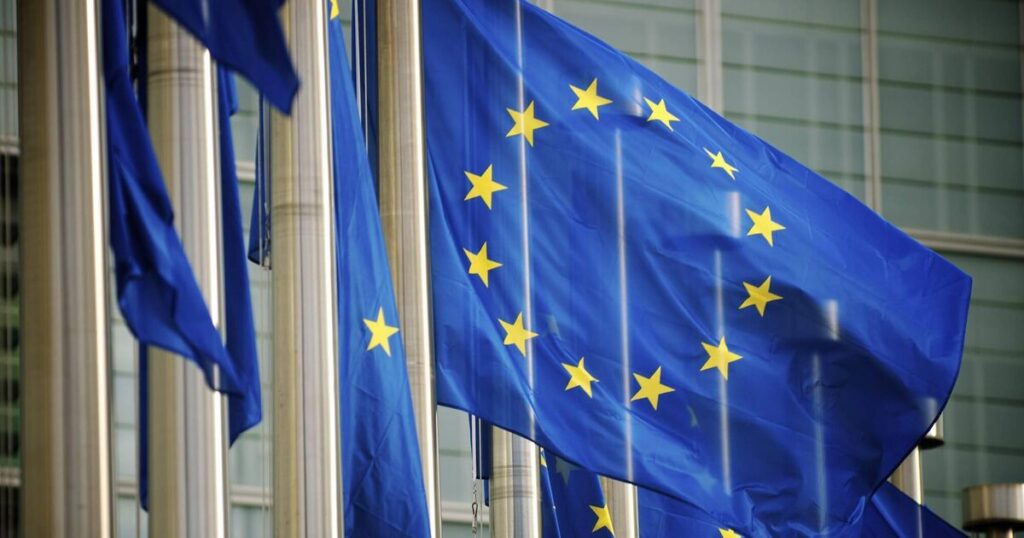A recent study reveals a worrying trend: only half of young people in France and Spain believe that democracy is the best form of government. Support is even lower among their Polish peers.
The study found that a majority (57%) of Europe’s Generation Z favors democracy over other forms of government. However, support levels vary significantly across countries, dipping to just 48% in Poland and around 51-52% in Spain and France, while Germany shows the highest support at 71%.
The study also found that more than one in five young Europeans (21%) would favor authoritarian rule under certain, unspecified circumstances. This sentiment was most prevalent in Italy (24%) and least common in Germany (15%), with France, Spain, and Poland all registering 23%.
Nearly 1 in 10 young people across the surveyed nations expressed indifference towards whether their government was democratic or not, while an additional 14% were unsure or did not respond.
Thorsten Faas, a political scientist at Berlin’s Free University involved in the study, noted a concerning correlation: “Among people who see themselves as politically to the right of centre and feel economically disadvantaged, their support of democracy sinks to just one in three.”
“Democracy is under pressure, from within and without,” he added.
The research, conducted by the YouGov institute for the Tui Foundation, polled over 6,700 individuals aged 16 to 26 in Britain, Germany, France, Spain, Italy, Greece, and Poland during April and May. This marks the ninth annual survey funded by the Tui Foundation, which supports youth-focused projects in Europe.
Forty-eight percent of respondents worry that the democratic system in their own country is at risk. This concern is particularly pronounced in Germany (61%), where economic struggles and the rise of the far-right, fueled in part by increased support from young voters, are prominent issues.
Respondents perceived a shift in global power away from Europe, influenced by factors such as the potential return of Donald Trump, China’s growing influence, and Russia’s invasion of Ukraine. Only 42% consider the EU to be among the top three global players.
Interestingly, despite Brexit, the UK showed the highest percentage (50%) viewing the EU as a top global player. Moreover, 73% of young Britons expressed a desire to rejoin the EU, while nearly half of young Europeans (47%) advocated for stronger ties between the EU and Britain.
The US was identified by 83% as a top power, followed by China (75%) and Russia (57%).
Growing polarization is pushing young Europeans towards the ideological extremes, mirroring trends among older generations. Notably, a gender divide is emerging in this process.
The survey revealed that 19% of young Europeans identify as politically right of center, up from 14% in 2021, while 33% consider themselves centrists, 32% leftist, and 16% without any designation.
Women in Germany, France, and Italy increasingly identify as progressive compared to four years ago, while young men in Poland and Greece have become more conservative over the same period.
Support for stricter migration policies has increased across the board since 2021, rising from 26% to 38%.
While most young Europeans remain optimistic about the EU’s potential and overwhelmingly support their country’s membership if it is still a member, 39% consider the EU not particularly democratic. Furthermore, only 6% believe their national governments are functioning effectively and require minimal changes.
Over half (53%) believe the EU focuses too much on minor details and trivial matters. They desire the bloc to prioritize tackling the high cost of living, strengthening defense against external threats, and fostering better conditions for companies to improve the economy.
Elke Hlawatschek, head of the Tui Foundation, commented, “The European project, which has brought us peace, freedom of movement and economic progress for decades, is seen as unwieldy.”
Greek respondents expressed the strongest need for fundamental reform of their political system and displayed the most skepticism towards the EU. Faas attributed this to the enduring trauma of the eurozone debt crisis that brought the country’s economy to the brink.
Despite strong support for climate protection among young Europeans, only one in three believe it should take precedence over economic growth. This figure has declined from 44% in 2021.


